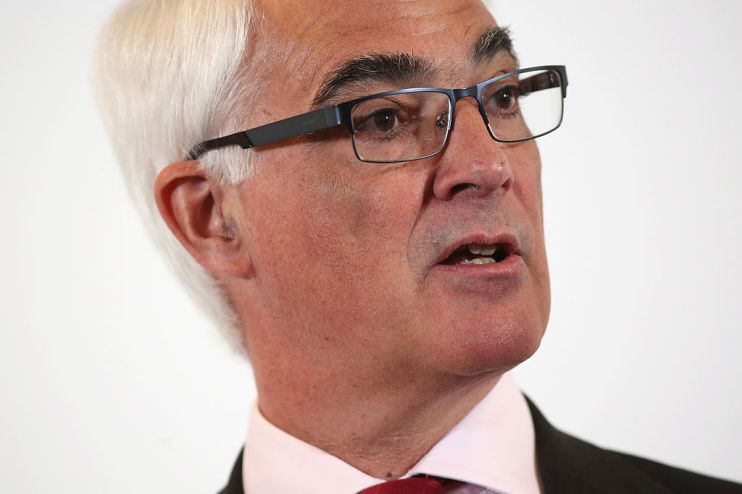Former chancellor Lord Alistair Darling backs Sunak’s VAT cut plans

Former chancellor Lord Alistair Darling has backed government plans to cut VAT in a bid to boost the economy, adding that the coronavirus crisis will result in an “even more profound shock” to the UK than the 2008 financial crisis.
In a foreword to a new Policy Exchange report, Darling expressed his support for current chancellor Rishi Sunak’s plans to slash the sales tax, suggesting that the current 20 per cent VAT rate should be dropped to 15 per cent in a bid to revive the economy.
“After the Covid-19 crisis subsides, we will enter a new period of recovery. Increasing taxes will not be the answer here, even as the budget deficit and government debt rises,” he said. “If anything, emergency tax cuts — slashing VAT to 15 per cent for instance, as I did in November 2008 — should be considered to boost consumer spending.”
Darling, who served as chancellor under Labour Prime Minister Gordon Brown during the 2008 financial crisis, slashed VAT from 17.5 per cent to 15 per cent for 13 months in the immediate wake of the crash. Darling’s VAT cut was widely credited with helping revitalise the economy by persuading consumers to spend.
He added: “The period after the last crash was one of extraordinary challenges and there was an urgent need to reduce the budget. But as the economy reels from an even more profound shock — the Covid-19 crisis — I sincerely hope that the government’s approach this time must be different.”
Darling backed the Policy Exchange’s proposals to devolve all infrastructure projects worth less than £500m.
The Policy Exchange report, co-authored by Gerard Lyons, former economic adviser to Boris Johnson, called on the government to instead prioritise smaller “shovel ready” projects, such as investing in electric vehicle charging infrastructure, cycling routes, and national parks.
“Policy Exchange’s proposal that central government should not control any project costing under £500m should be vigorously pursued,” said Darling. “If the government is in favour of levelling up the economy, ministers must recognise that this cannot be done from the top down.”
It comes amid mounting fears that the Prime Minister is set to hike tax rates to counteract the UK’s £300bn coronavirus deficit, despite his promise not to raise income tax, national insurance or VAT in his election manifesto.
Former chancellor George Osborne this month warned that the PM may be forced to U-turn and introduce austerity measures in order to revive the economy back to pre-coronavirus levels.
“You can talk as much as you like about taxing billionaires, taxing tech companies and all those things and it all adds up and helps,” he said.
“But the big money raises are your income taxes, your national insurances, your VATs – those big central taxes that the government relies on.
The Institute of Fiscal Studies (IFS) this week said the economic shutdown has slashed nearly two decades of growth and warned that borrowing will skyrocket to levels not seen since the Second World War.
The Office for Budget Responsibility (OBR) earlier this month said it expects government spending to increase by a further £9bn to more than £132bn.
The IFS warned that the chancellor will need to come up with £40bn worth of tax hikes or spending cuts in order to stabilise debt levels to 100 per cent of GDP following the pandemic.
Before the Open: Get the jump on the markets with our early morning newsletter